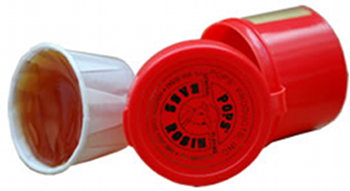DEAR OLD POPS'If there was an "Order" of the bass players, I think I would deserve in full the expulsion of it and even exile. During this year I talked mainly about bows for violin, viola, and cello and I've not even dedicated an article to the instrument that I studied for almost twenty years, the double bass. What a shame!
It was the intervention of Claudio, a cellist, to remind me of the beloved Pops'. This rosin deserves all my respect, both as a bow expert and as a bass player. The Pops' is a rosin rich in turpentine, which makes it very dense and greasy, namely a "glue". When it made its debut many years ago, it has become the irreplaceable partner for the greatest part of bass players. The reason for this success is fairly intuitive to understand, at least partially . For the intuitive part it is enough to watch the diameter of bass strings. Our strings are horribly large, as the instrument , and to put them in vibration the rosin must be a very sticky one. In addition to the huge string, to aggravate the situation of the bass, there is also the difficulty of finding bows properly built with good wood. Since ancient times, both bow and violin makers , have relegated the bass in the "B" series of stringed instruments and not as a matter of taste or racism, but for laziness and business reasons. Let me explain better . If a bow maker has a nice stick,in the the size to build a double bass bow (22x22mm), he cuts it in the half lengthwise and makes two violin bows. No bow maker likes to do any double bass bows, they are laborious to build and are much more difficult to sell in comparison to violin bows. To any bass player, including me, also because of this inaction of the bow makers there is a lack of culture on this issue. If you speak with a medium bass player of ancient bows, he will name Morizot and Bazin (two workshops), or for the more educated ones Gillet and Sartory. It is only more than normal. The real great one such as Tourte, Persoit, Peccatte, have built very few bass bows in their careers, and when I say few I mean just one or two mostly. So the technical/ making development of this type of bows has been much slower and more difficult, and only in the recent decades we could see something noticeable. . Of course, if the craftsmen used good wood for violin and cello bows, for the bass only poor wood was left, I.e. with a low sound speed, and as you know, the grip on the rope is given mainly by this factor. The lower it, the less it stay attached. This is another reason why the Pops' is so greasy. As far as the cello is concerned , however, as I have already written to Claudio, I retain the use the Pops' a little bit excessive, and often the excess is used to compensate the absence. If you must use this rosin and you are not bass player I would bet that the wood of your bow has never been adequate, or has seen better days. So long. Paolo.
|
   |






